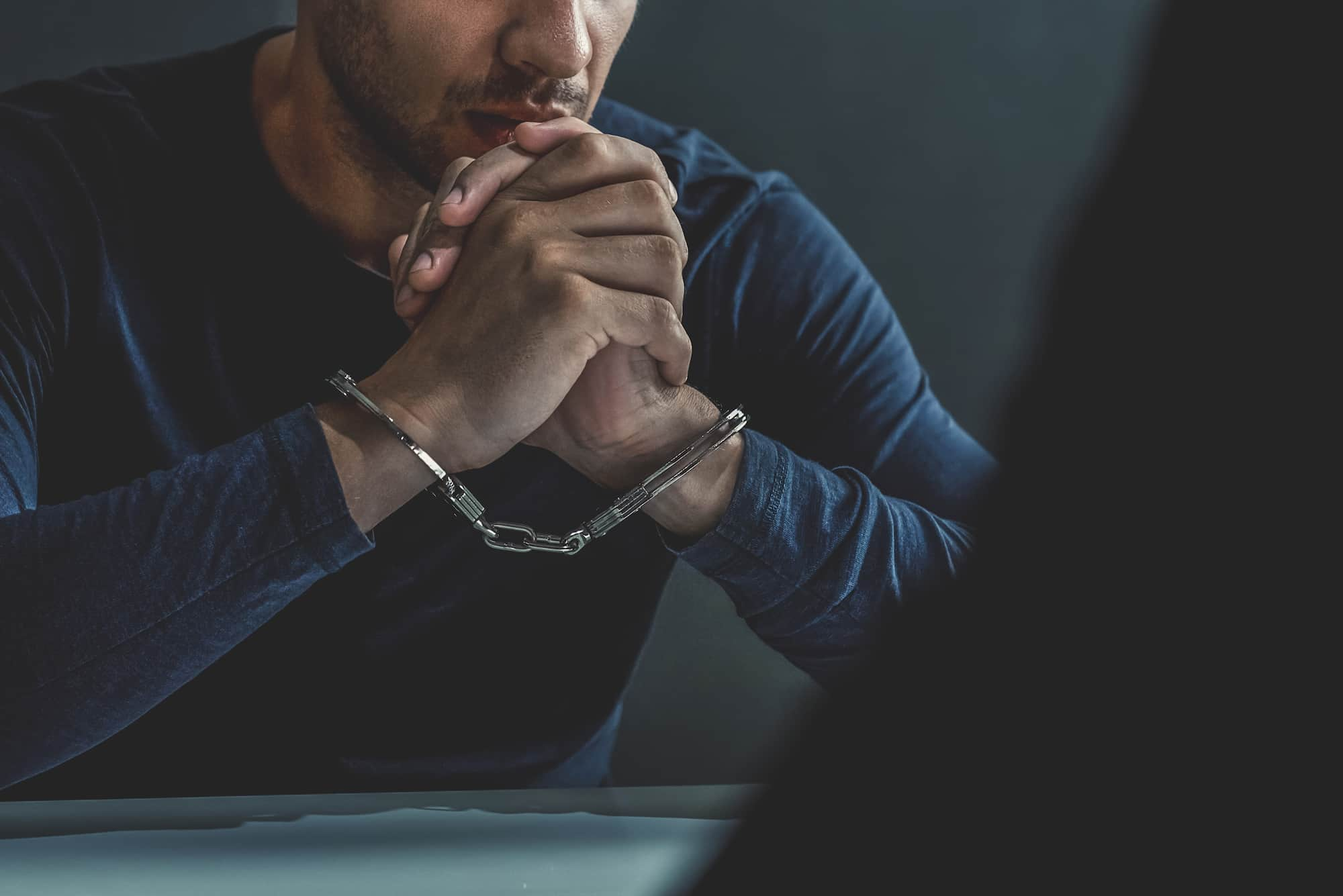Navigating the Legal Consequences of Probation Violation in Virginia
Probation in Virginia is a critical juncture in the criminal justice system, offering people a chance for rehabilitation outside of prison walls while still subject to judicial supervision. Understanding probation and the consequences of a probation violation in Virginia is essential for someone who finds themselves under probation.
David G. Parker Law aims to demystify the probation violation rules in Virginia by providing a clear and comprehensive overview of what it means to be on probation, the responsibilities while on probation, and the consequences of failing to adhere to its terms.
What is Probation in Virginia?
Overview of Probation in Virginia
In Virginia, probation is a legal status imposed on individuals who have been convicted of a crime but are allowed to serve their sentence outside of prison under certain conditions. This contrasts with parole, which is typically a conditional release after serving part of a prison sentence. Probation can be imposed with or without an active jail or prison sentence.
Purpose of Probation: The primary aim of probation is to rehabilitate the offender while keeping the community safe. It provides an opportunity for the individual to integrate back into society while remaining under some form of supervision, thereby reducing the strain on the prison system and potentially lowering the rate of recidivism.
Types of Probation in Virginia
- Supervised Probation: This is the most common form of probation, requiring regular check-ins with a probation officer. Individuals under supervised probation might be subject to home visits, drug testing, employment verification, and other forms of monitoring to ensure compliance with the terms of their probation.
- Unsupervised Probation: Unsupervised probation, while less strict, still mandates the individual to comply with the law and the court’s orders. However, regular meetings with a probation officer are not required, offering greater personal freedom.
- Specialized Probation: Certain offenses in Virginia may result in specialized probation terms. For instance, drug offenses could lead to drug treatment probation, where the individual must participate in and complete a particular drug treatment program as a requirement of their probation conditions.
General Terms and Conditions of Probation
Standard probation conditions typically include obeying all laws, maintaining employment, residing at an approved location, and appearing at scheduled appointments with the probation officer. The probationer may also be required to pay fines, restitution, and probation fees.
- Special Conditions: Depending on the offense and the individual’s history, special conditions like substance abuse treatment, community service, or no-contact orders with specific individuals may be imposed.
- Compliance Monitoring: In Virginia, compliance is often monitored through regular communication with a probation officer, and may include methods like drug testing, GPS monitoring, or home visits.
- Modifications to Probation Terms: Probation terms may be modified based on the individual’s behavior and compliance. This could mean an easing of requirements for demonstrating good behavior or imposing more stringent restrictions for minor infractions (such as more strict drug testing if a probationer tests positive for drug use).
Understanding Probation Violation
- Definition of Probation Violation: A probation violation occurs when an individual fails to adhere to the conditions of probation set by the court. This can range from failing to maintain contact with a probation officer to committing a new crime.
- Common Probation Violation Scenarios: Common violations include failing drug tests, failing to report to the probation officer, not paying required fines, or getting arrested for new offenses.
- Consequences of Probation Violation in Virginia: The consequences can range from a warning to revocation of probation, leading to potential imprisonment. The specific outcome depends on the nature of the violation, the individual’s history, and the discretion of the court.
Understanding the various aspects of probation in Virginia is crucial for anyone under judicial supervision. Adhering to probation terms is key to avoiding legal complications and successfully completing the probation period.
Legal Process Following a Probation Violation in Virginia
Initial Steps after a Suspected Probation Violation
When a probation violation is suspected, the first step typically involves the probation officer. They will evaluate the situation and determine whether the violation is minor or severe. For minor violations, they may issue a warning or increase supervision. In cases of serious violations, the probation officer will file a major violation report with the court. This report details the conditions of probation alleged to have been violated and any evidence supporting the claim.
Issuance of Legal Process: Based on the violation report, the court will issue legal process for the individual to appear in court. Depending on the severity of the underlying case and the seriousness of the alleged violations, the individual may or may not remain free on bond pending a court hearing.
Learn more here about navigating felony probation violations in Virginia >>
The Role of Probation Officers and the Court
Probation Officer’s Recommendation
The probation officer might make a recommendation to the court regarding the appropriate action, which can range from modifying the terms of probation to recommending jail time.They may also recommend releasing the person from further supervision. The probation officer’s recommendation is typically found at the end of the major violation report.
Court Proceedings
The individual accused of a violation is entitled to a hearing in court. This hearing determines whether a violation has occurred and, if so, the appropriate response.
Legal Rights of Individuals on Probation
- Right to a Hearing: Individuals accused of probation violations have the right to a hearing where they can contest the allegations or make an argument to the judge as to the suitable punishment
- Legal Representation: They also have the right to be represented by an attorney during these proceedings. If they cannot afford one and qualify as indigent, the court may appoint a public defender or court-appointed counsel from a list of private attorneys who handle such matters.
- Right to Present Evidence and Witnesses: The individual can present evidence and witnesses in their defense during the hearing.
- Standard of Proof: Unlike criminal trials, the standard of proof in probation violation hearings is ‘good cause’ rather than ‘beyond a reasonable doubt’. This is because a probation violation hearing is not considered to be a trial.
Potential Outcomes of Probation Violation Hearings
- Continuation of Probation: The court may decide to revoke and resuspend the sentence and allow the individual to continue on probation with the same or modified terms.
- Revocation of Probation: In more severe cases, the court may revoke the defendant and impose the original sentence or a part of it.
- Additional Penalties: The court might also impose additional penalties, such as extended probation, mandated counseling, or substance abuse treatment programs.
It is important to understand the gravity of probation violations and the ensuing legal process in Virginia. Understanding these proceedings and the rights of individuals on probation is crucial for navigating the system effectively. This is true even before an individual is subject to a probation violation; the consequences need to be understood whenever someone is first placed on probation by a court.
Sentencing Revocation Report Guidelines
Felony probation violations in Virginia carry guidelines that recommend a particular sentence. The sentencing guidelines for violations of probation are complicated and depend greatly on the conditions alleged to have been violated, the nature of the underlying offense, the number of previous violations of probation, and other factors. In some circumstances, the guidelines are quite lenient. In others, they can recommend significant periods of incarceration.
A judge is typically not required to follow the recommendations of a revocation report’s guidelines (when they are, it typically involves guidelines that are favorable to the defendant which prohibit or limit the potential period of incarceration). The specifics of your case’s guidelines will greatly depend on the particular facts and circumstances of the violation, and cannot be explained here. An attorney experienced in handling probation violations can review the guidelines in your case and provide a more thorough explanation.
Strategies for Responding to an Alleged Probation Violation in Virginia
Initial Response to Allegations
If you’re facing a probation violation allegation in Virginia, it’s essential to first understand the specifics of the major violation report. Knowing exactly which conditions of your probation are alleged to have been violated is crucial for forming an effective response.
Contact your probation officer promptly to discuss the allegation, if possible. Once charged, it’s also wise to consult legal counsel before making any statements or decisions, as they can guide you through the legal implications and appropriate actions.
Importance of Legal Representation
Engaging with a lawyer experienced in Virginia’s probation violation laws and rules is critical. They can advocate for you in court, offer legal advice before and after the hearing, and guide you through the complexities of the probation violation process. Your attorney will help you understand the legal process, develop a defense strategy, and communicate effectively with the court. The goal in any probation violation is obviously to obtain the best possible outcome, given the particular circumstances of the case.
Preparing for a Probation Violation Hearing
- Gathering Evidence and Documentation: Collect any evidence or documentation that proves compliance with your probation terms, or that explains (even to some extent) why the conditions of probation were unable to be followed properly. This might include attendance records for mandated programs, hospital records, or employment verification.
- Witness Testimonies: Consider gathering testimony from character witnesses, such as employers or community leaders, who can vouch for your good character, discuss hardships you have been facing, and/or your potential for future compliance with probation terms.
Defense Strategies in Probation Violation Cases
Common Defense Approaches: Defense strategies may include demonstrating a misunderstanding of probation terms, providing evidence of actual compliance, or highlighting efforts toward rehabilitation after mistakes have been made. Your lawyer will want to tailor your defense to the specifics of your case. Consider the nature of the alleged violation and your history when formulating your defense. An argument that might be sound for someone with a limited record might not be effective for someone with an extensive history with the court.
Mitigating Penalties
In some cases, it’s possible to negotiate with prosecutors for reduced penalties or alternative resolutions. Demonstrating remorse, ongoing rehabilitation efforts while the violation is pending, and a positive role in the community can be influential in mitigating penalties.
Being informed and proactive about your case is key to navigating the challenge of a probation violation effectively.
Navigating Probation in Virginia: Tips for Success
Navigating the complexities of probation in Virginia can be challenging, but with the right approach and mindset, it’s absolutely manageable. This section offers practical tips and supportive advice to help you successfully navigate your probation period.
Know Your Probation Terms Inside and Out
- Get Clear on the Details: It’s super important to fully understand your probation terms. Keep a copy of these terms handy and refer to them often. If anything is unclear, don’t hesitate to ask your probation officer for clarification. It is better to communicate too much with the probation officer than too little.
- Stick to the Plan: Whether it’s attending counseling sessions, keeping a job, or respecting a curfew, make sure you’re consistently following all your probation terms. Think of it as a roadmap to successfully completing your probation.
Build a Positive Relationship with Your Probation Officer
- Keep Up with Check-Ins: Missing an appointment with your probation officer is a big no-no. Set reminders for yourself and always be on time for check-ins.
- Stay Open and Honest: If you’re struggling with any aspect of your probation, talk to your probation officer about it. They’re there to help you stay on track, and communicating like this will demonstrate to the officer that you are taking your obligations seriously.
Leverage Support and Resources
- Tap into Helpful Resources: If you need help, whether it’s finding a job or dealing with personal issues, there are resources out there. Your probation officer can guide you to services like counseling, substance abuse treatment, or job assistance programs.
- Surround Yourself with Support: Having a strong support network is key. Friends, family, or support groups who understand what you’re going through can be a huge help.
Dealing with Challenges
- Face Setbacks Head-On: Life happens, and sometimes things don’t go as planned. If you miss an appointment or face a hurdle, the best approach is to communicate openly with your probation officer and take responsibility. Shutting down and avoiding the probation officer may be tempting, but it is harmful.
- Seek Legal Guidance When Needed: If you’re facing a complication or a potential violation, getting some legal advice from a trained professional can make a big difference. It’s always better to be proactive and informed.
Remember, being on probation is a chance for a fresh start and an opportunity for personal growth. Stay committed to the process, use the resources available to you, and keep open lines of communication with your probation officer. With these strategies in hand, you’re well-equipped to navigate probation in Virginia successfully.
David G. Parker Law | Helping You Navigate Probation in Virginia with Confidence
Probation in Virginia, while a preferable alternative to incarceration, comes with its own set of challenges and responsibilities. The importance of adhering to probation terms cannot be overstated, as the consequences of violations can be severe.
However, with the right approach and mindset, navigating the probation period can be a time of positive personal growth and rehabilitation. The structure it provides does carry a burden, but it’s designed to rebuild your routines and personal accountability. Regular communication with your probation officer, adherence to the set conditions, and utilization of support systems are fundamental to this process. In cases of difficulties or misunderstandings, seeking legal advice is always a prudent step.
If you or someone you know is facing challenges related to probation in Virginia or has violated their probation terms, our team is here to provide support and legal advice. Don’t hesitate to reach out for guidance and assistance. Contact David G. Parker Law today for a free consultation and to discuss your legal options.







